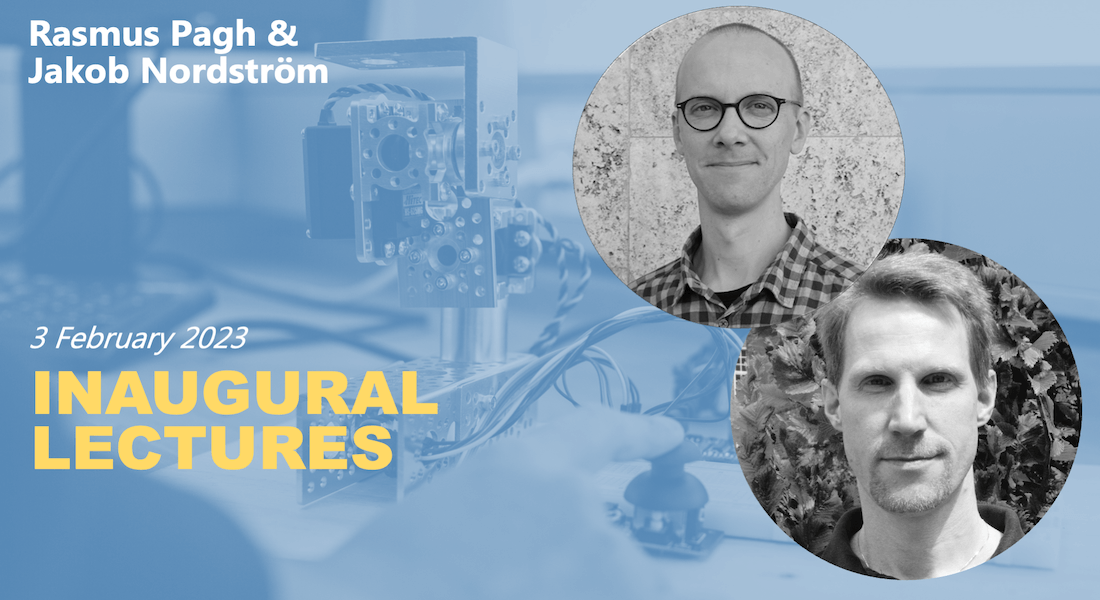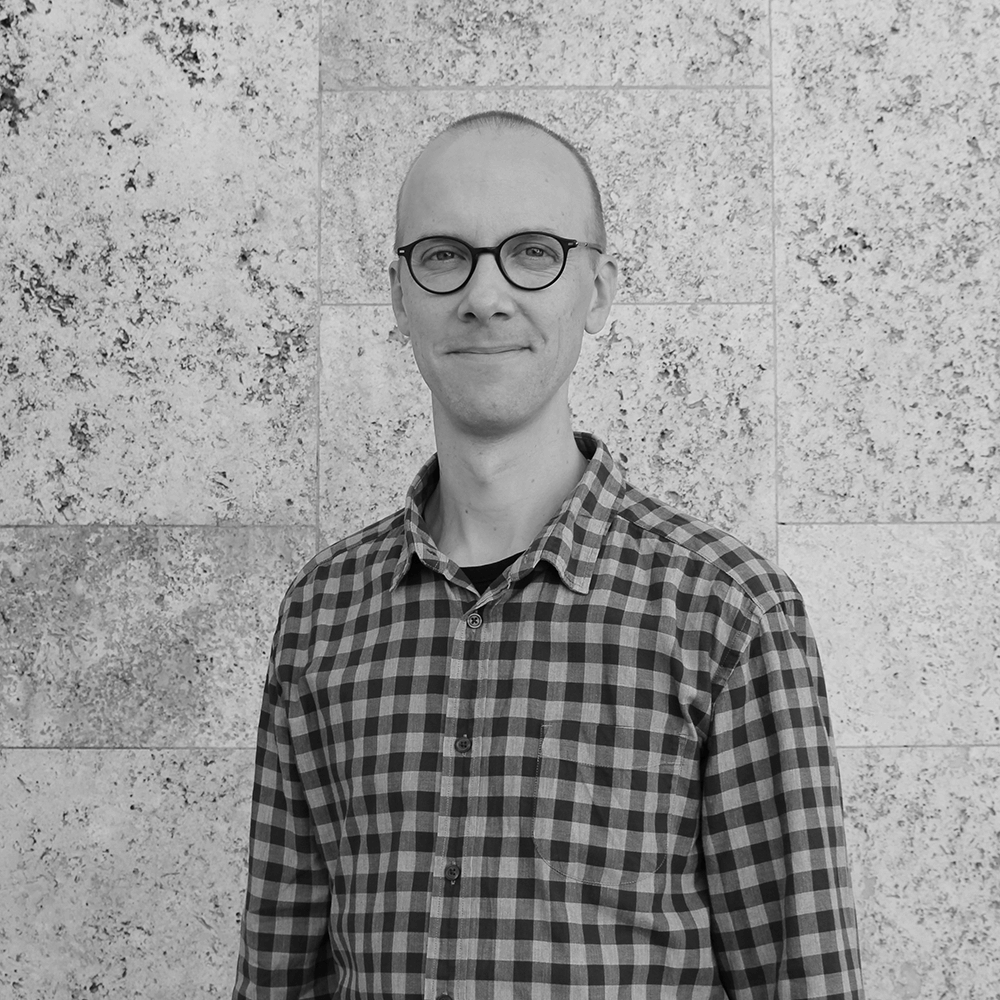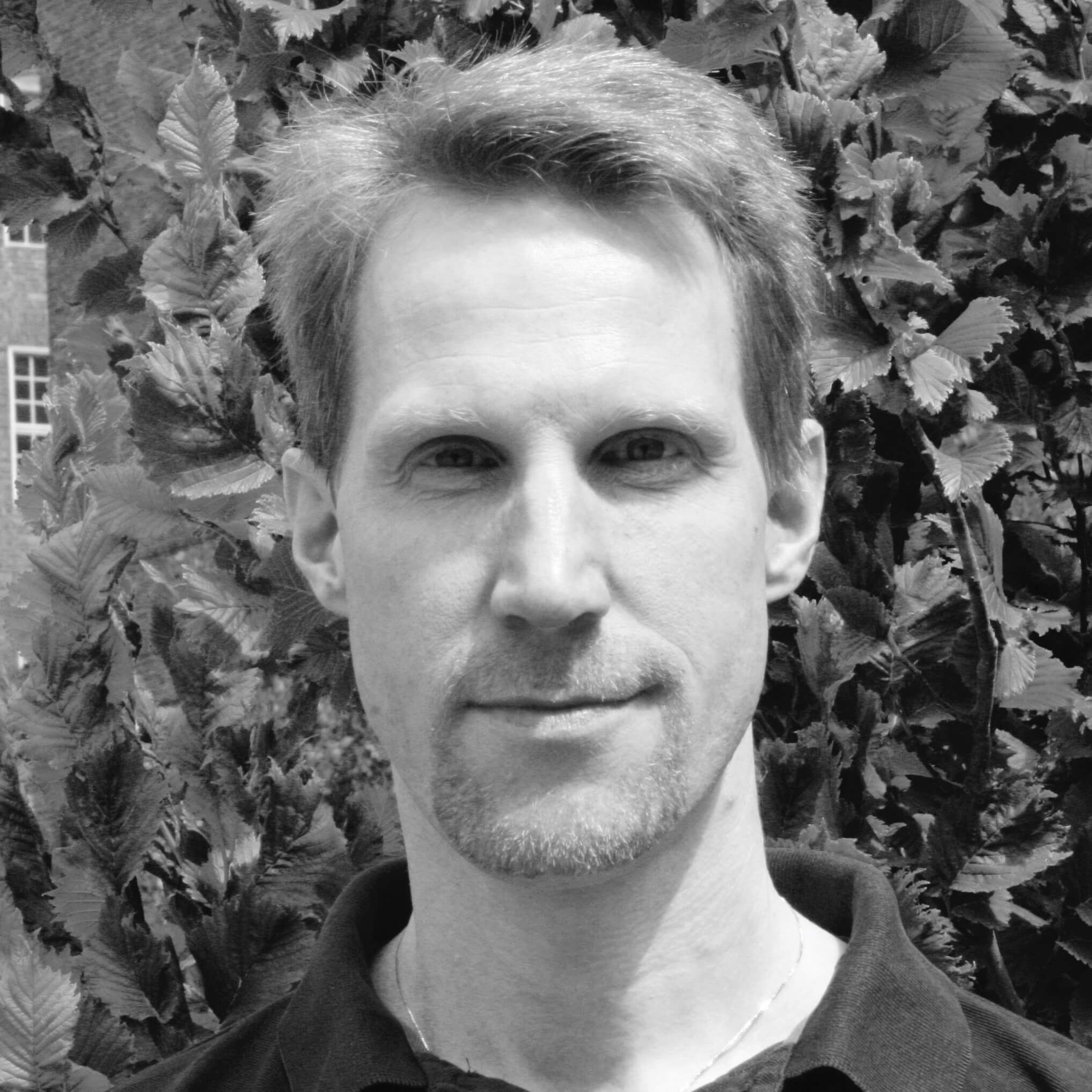Inaugural Lectures: Rasmus Pagh & Jakob Nordström

To celebrate their appointments as Professors at the Department of Computer Science at the University of Copenhagen, Rasmus Pagh and Jakob Nordström will give their inaugural lectures on 3 February at 2:15 PM and 3:00 PM, followed by a reception.
Rasmus Pagh
Title
Taming randomness in computing
Abstract
A key challenge in computing is controlling complexity and obtaining reliable, transparent behavior. Paradoxically, introducing uncertainty in the form of randomness in algorithms is often the only way of achieving the properties we want, such as scalability, reliability, accuracy and privacy. However, to tame the beast of randomness we need a solid mathematical understanding. In this talk I will illustrate our work on taming randomness with a simple example problem: Counting different types of events. Though this problem can be solved with algorithms taught to first-year students, it becomes challenging when there are so many events that we cannot keep track of them all, or when individual events may be considered sensitive data. We will see how randomness can be used to address both these challenges.
Bio
 Rasmus Pagh received his PhD in computer science from Aarhus University in 2002 with a thesis on hashing algorithms. He was a faculty member at IT University of Copenhagen from 2002 until joining University of Copenhagen as professor in December 2020. Rasmus has been on sabbatical research stays at Carnegie-Mellon University, at the Simons Institute for Theory of Computing in Berkeley, and at Google Research. His research has been supported by, among others, an ERC Consolidator Grant and a Novo Nordisk Distinguished Investigator Grant.
Rasmus Pagh received his PhD in computer science from Aarhus University in 2002 with a thesis on hashing algorithms. He was a faculty member at IT University of Copenhagen from 2002 until joining University of Copenhagen as professor in December 2020. Rasmus has been on sabbatical research stays at Carnegie-Mellon University, at the Simons Institute for Theory of Computing in Berkeley, and at Google Research. His research has been supported by, among others, an ERC Consolidator Grant and a Novo Nordisk Distinguished Investigator Grant.
Jakob Nordström
Title
The Computational Challenge of Combinations
Abstract
Combinatorial solving deals with problems that are solved by combining objects, but where these objects cannot be subdivided to make it easier to find solutions. To see what this means, note that in a power grid we can fine-tune voltages and currents to get the right power distribution, but if we want to distribute packages between delivery trucks, there is no way we can fine-tune the load balance by assigning 90% of a package to one truck and the remaining 10% to another. This fact makes combinatorial problems computationally very challenging. In this talk, I will discuss three aspects of my research on combinatorial problems:
- Are we lacking good general-purpose algorithms for combinatorial problems because we just haven't been smart enough, or can one prove mathematically that these problems are somehow inherently hard to solve for computers?
- For the type of combinatorial problems that can be solved in practice, can we leverage more sophisticated mathematical tools to get even better performance?
- For problems with life-or-death consequences, is there any way we can guarantee that what the computer outputs is in fact a correct solution?
Bio
 Jakob Nordström obtained his Master of Science degree in Computer Science and Mathematics at Stockholm University in 2001, and his PhD degree in Computer Science at KTH Royal Institute of Technology in 2008. During 2008-2010 he was a postdoctoral researcher at the Massachusetts Institute of Technology (MIT), after which he returned to KTH in 2011, where he became an associate professor and received his Docent degree (habilitation) in 2015. In 2019 he moved to the University of Copenhagen, where he is now a full professor, and since 2020 he also has a part-time affiliation with Lund University.
Jakob Nordström obtained his Master of Science degree in Computer Science and Mathematics at Stockholm University in 2001, and his PhD degree in Computer Science at KTH Royal Institute of Technology in 2008. During 2008-2010 he was a postdoctoral researcher at the Massachusetts Institute of Technology (MIT), after which he returned to KTH in 2011, where he became an associate professor and received his Docent degree (habilitation) in 2015. In 2019 he moved to the University of Copenhagen, where he is now a full professor, and since 2020 he also has a part-time affiliation with Lund University.
Programme
| 14:15 - 14:45 | Inaugural lecture by professor Rasmus Pagh |
| 14:45 - 15:00 | Break |
| 15:00 - 15:30 | Inaugural lecture by professor Jakob Nordström |
| 15:30 - 16:15 | Joint reception |
The lectures will take place at:
Auditorium 1
August Krogh Institute
Universitetsparken 13
2100 Copenhagen
